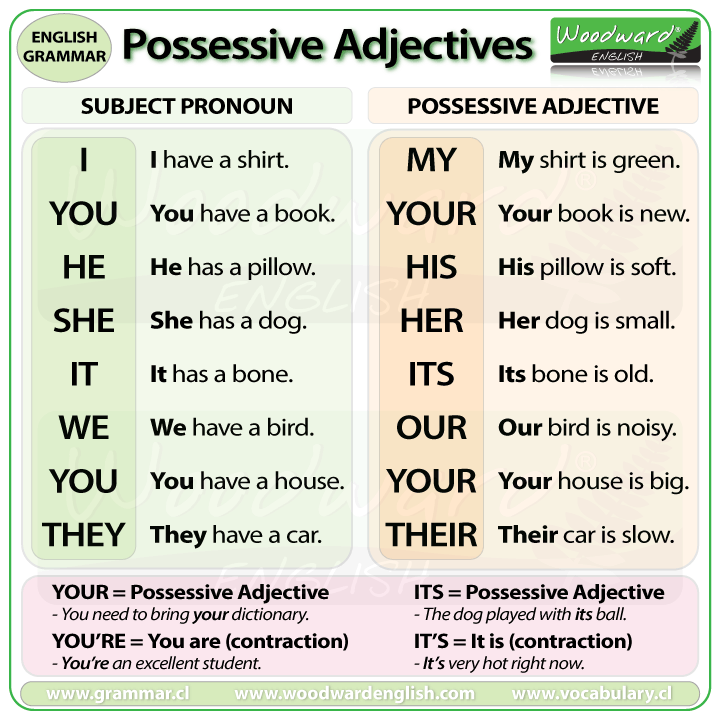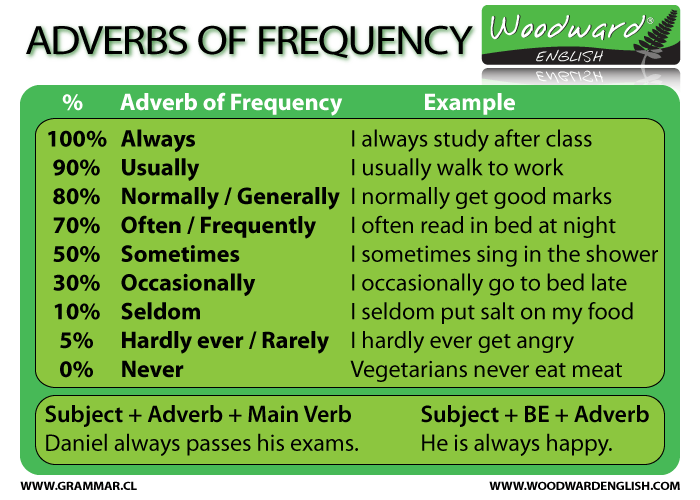* REVIEW: EIGHTH (8th). CAT: PEDRO V. MALDONADO Y UNIÓN NOROCCIDENTE.
* My ABC..........
* Greetings and Introductions (Saludos y presentaciones)
Hello: hola
Welcome: bienvenido
Good morning: buenos días
Good afternoon: buenas tardes
Good
evening: buenas noches
Goodbye: adiós
Please: por
favor
Thank
you: gracias
Excuse me: perdón
Glad to meet you: Gusto en conocerte
Please to greet you: Un placer saludarte
* Useful Phrases (Frases útiles)
What is your name? (¿Cómo te llamas?)
Hello, my name is… (Hola, me llamo… / mi nombre es......)
Pleased to meet you. / Nice to meet you.
(Encantado / Mucho gusto)
How are you? (¿Cómo estás?/ ¿Qué tal?)
What’s happening? / What’s up? (¿Qué pasa?)
I’m fine, thank you. (Estoy bien, gracias.)
And you? (¿Y tú?)
How old are you? (¿Cuántos años tienes?)
I am… years old. (Tengo… años.)
Where are you from? (¿De dónde eres?)
Where do you live? (¿Dónde vives?)
What do you do? / What do you do for a
living? (¿Qué haces? / ¿En qué
trabajas?)
Do you speak Spanish? (¿Hablas español?)
Excuse me. (Perdón.)
I don’t understand. (No entiendo.)
Can you repeat, please? (¿Puedes repetir
por favor?)
Can you speak slower, please? (¿Puedes hablar más despacio por favor?)
Thank you very much! (¡Muchas gracias!)
You’re welcome. (De nada.)
See you later! (¡Hasta luego!)
Have a nice day! (¡Que pase un buen día!)
Same to you. (Igualmente.)
* REVIEW: NINTH (9th). CAT: PEDRO V. MALDONADO Y UNIÓN NOROCCIDENTE.
* Revise y repase sobre los Pronombres Personales y los Adjetivos Posesivos.

* Revise sobre otros Adjetivos.
Common
adjectives.
Good:
New:
First:
Last:
Long:
Great:
|
Little:
Own:
Other:
Old:
Right:
Big:
|
High:
Different:
Small:
Large:
Next:
Early:
|
Young:
Important:
Few:
Public:
Bad:
Same:
Able:
|
Personality adjectives – Positive
Agreeable
Brave
Calm
Delightful
Eager
|
Faithful
Gentle
Happy
Jolly
Kind
|
Lively
Nice
Obedient
Proud
Relieved
|
Silly
Thankful
Victorious
Witty
Zealous
|
Personality adjectives – Negative
Angry
Bewildered
Clumsy
Defeated
Embarrassed
|
Fierce
Grumpy
Helpless
Itchy
Jealous
|
Lazy
Mysterious
Nervous
Obnoxious
Panicky
|
Repulsive
Scary
Thoughtless
Uptight
Worried
|
* REVIEW: TENTH (10th). CAT: PEDRO V. MALDONADO Y UNIÓN NOROCCIDENTE.
* Revise y repase sobre los verbos irregulares en presente y pasado.
Present
|
Past
Simple
|
Present
|
Past
Simple
|
be
|
was / were
|
begin
|
began
|
break
|
broke
|
bring
|
brought
|
build
|
built
|
buy
|
bought
|
catch
|
caught
|
choose
|
chose
|
come
|
came
|
cost
|
cost
|
cut
|
cut
|
do
|
did
|
draw
|
drew
|
drink
|
drank
|
drive
|
drove
|
eat
|
ate
|
fall
|
fell
|
feel
|
felt
|
fight
|
fought
|
find
|
found
|
fly
|
flew
|
forget
|
forgot
|
freeze
|
froze
|
get
|
got
|
give
|
gave
|
go
|
went
|
have
|
had
|
hear
|
heard
|
hold
|
held
|
hit
|
hit
|
keep
|
kept
|
know
|
knew
|
learn
|
learnt
|
leave
|
left
|
lead
|
led
|
let
|
let
|
lie
|
lay
|
lose
|
lost
|
make
|
made
|
mean
|
meant
|
meet
|
met
|
pay
|
paid
|
put
|
put
|
read
|
read
|
ride
|
rode
|
run
|
ran
|
say
|
said
|
see
|
saw
|
sell
|
sold
|
send
|
sent
|
set
|
set
|
shut
|
shut
|
sing
|
sang
|
sit
|
sat
|
sleep
|
slept
|
speak
|
spoke
|
spend
|
spent
|
stand
|
stood
|
steal
|
stole
|
swim
|
swam
|
take
|
took
|
teach
|
taught
|
tell
|
told
|
think
|
thought
|
understand
|
understood
|
wake
|
woke
|
wear
|
wore
|
win
|
won
|
write
|
wrote
|
* Regular verbs. (Copiar en la tutoria)
Infinitive Past
Participle Significado
Chat Chatted
Chatted Charlar
Check Checked Checked Verificar
Damage Damaged Damaged Dañar
Dance Danced Danced Bailar
Date Dated Dated Salir con, Pololear
Decide Decided Decided Decidir
Deliver Delivered Delivered Entregar
Depend Depended Depended Depender
Describe Described Described Describir
Design Designed Designed Diseñar
Destroy Destroyed Destroyed Destruir
Dicrease Dicreased Dicreased Disminuir
Die Died Died Morir
Disagree Disagreed Disagreed Estar en desacuerdo
Discover Discovered Discovered Descubrir
Discuss Discussed Discussed Discutir
Disturb Disturbed Disturbed Molestar
Dress Dressed Dressed Vestir
Dry Dried Dried Secar * REVIEW: FIRST (1st bgu). CAT: PVM Y UNIÓN NOROCCIDENTE.
* Revise sobre un listado de adverbios de frecuencia y sus usos.

http://www.grammar.cl/Basic/Adverbs_Frequency.htm
(Revise este Link sobre los adverbios de Frecuencia está en YouTube)
* Adverbios en construcción de oraciones.
The Position of the Adverb in a Sentence
An adverb of frequency goes before a main verb (except with To
Be).
Subject + adverb + main verb
|
I always remember to do my homework.
|
He normally gets good marks in exams.
|
An adverb of frequency goes after the verb To Be.
Subject + to be + adverb
|
They are never pleased to see me.
|
She isn't usually bad tempered.
|
When we use an auxiliary verb (have, will, must, might, could, would, can, etc.), the adverb is placed between the
auxiliary and the main verb. This is also true for to be.
Subject + auxiliary + adverb + main
verb
|
She can sometimes beat me in a race.
|
I would hardly ever be unkind to
someone.
|
They might never see each other again.
|
They could occasionally be heard
laughing.
|
* Conteste: Para usted qué es Arte? y de qué manera se expresa el arte? Demuestre con gráficos.
* REVIEW: SECOND (2nd bgu). CAT: PVM - UNIÓN NOROCCIDENTE.
* Revise y repase sobre la estructura gramatical de la Voz Pasiva.
Examples of Passive voice in present.
Tense
|
Subject
|
Verb
|
Object
|
|
Simple Present
|
Active:
|
Rita
|
writes
|
a letter.
|
Passive:
|
A letter
|
is written
|
by Rita.
|
|
Simple Past
|
Active:
|
Rita
|
wrote
|
a letter.
|
Passive:
|
A letter
|
was written
|
by Rita.
|
|
Present Perfect
|
Active:
|
Rita
|
has written
|
a letter.
|
Passive:
|
A letter
|
has been written
|
by Rita.
|
|
Future I
|
Active:
|
Rita
|
will write
|
a letter.
|
Passive:
|
A letter
|
will be written
|
by Rita.
|
|
Hilfsverben
|
Active:
|
Rita
|
can write
|
a letter.
|
Passive:
|
A letter
|
can be written
|
by Rita.
|
|
Examples of Passive Voice in Progressive.
Tense
|
Subject
|
Verb
|
Object
|
|
Present Progressive
|
Active:
|
Rita
|
is writing
|
a letter.
|
Passive:
|
A letter
|
is being written
|
by Rita.
|
|
Past Progressive
|
Active:
|
Rita
|
was writing
|
a letter.
|
Passive:
|
A letter
|
was being written
|
by Rita.
|
|
Past Perfect
|
Active:
|
Rita
|
had written
|
a letter.
|
Passive:
|
A letter
|
had been written
|
by Rita.
|
|
Future II
|
Active:
|
Rita
|
will have written
|
a letter.
|
Passive:
|
A letter
|
will have been written
|
by Rita.
|
|
Conditional I
|
Active:
|
Rita
|
would write
|
a letter.
|
Passive:
|
A letter
|
would be written
|
by Rita.
|
|
Conditional II
|
Active:
|
Rita
|
would have written
|
a letter.
|
Passive:
|
A letter
|
would have been written
|
by Rita.
|
|
Exercise on Passive Voice - Present Progressive
Rewrite the sentences in passive voice.
- Sheila is drinking a cup of tea. -
- My father is washing the car. -
- Farmer Joe is milking the cows. -
- She is taking a picture of him. -
- I am writing a poem. -
- We are not playing football. -
- He is not wearing a tie. -
- Is she preparing the party? -
- Are they talking about the meeting? -
- Is she watering the flowers? -
* REVIEW: THIRD (3rd bgu). CAT: PVM - UNIÓN NOROCCIDENTE.
* Revise y repase sobre la estructura gramatical de la Voz Pasiva.
Rewrite the sentences in passive voice.
- Sheila is drinking a cup of tea. -
- My father is washing the car. -
- Farmer Joe is milking the cows. -
- She is taking a picture of him. -
- I am writing a poem. -
- We are not playing football. -
- He is not wearing a tie. -
- Is she preparing the party? -
- Are they talking about the meeting? -
- Is she watering the flowers? -
Revise y repase sobre la estructura gramatical del uso de Used to.
Used to
Exercise 1
Make an affirmative sentence, negative sentence or question using 'used to
+ infinitive':
1) I / live in a flat when I was a child.
|
2) We / go to the beach every summer?
|
3) She / love eating chocolate, but now she hates
it
|
4) He / not / smoke
|
5) I / play tennis when I was at school
|
6) She / be able to speak French, but she has
forgotten it all
|
7) He / play golf every weekend?
|
8) They both / have short hair
|
9) Julie / study Portuguese
|
10) I / not / hate school
|
Revise. En la tutoria se trabajará sobre este tema.
Simple
Present – Exercise 01
Change the verb into the correct form, then press "Check" to
check your answers. Note that you will lose points if you ask for hints!
1. I usually (go) to school.
2. They (visit) us often.
3. You (play) basketball once a week.
4. Tom (work) every day.
5. He always (tell) us funny stories.
6. She never (help) me with that!
7. Martha and Kevin (swim) twice a week.
8. In this club people usually (dance) a lot.
9. Linda (take care) of her sister.
10. John rarely (leave) the country.
11. We (live) in the city most of the year.
12. Lorie (travel) to Paris every Sunday.
13. I (bake) cookies twice a month.
14. You always (teach) me new things.
15. She (help) the kids of the neighborhood.
2. They (visit) us often.
3. You (play) basketball once a week.
4. Tom (work) every day.
5. He always (tell) us funny stories.
6. She never (help) me with that!
7. Martha and Kevin (swim) twice a week.
8. In this club people usually (dance) a lot.
9. Linda (take care) of her sister.
10. John rarely (leave) the country.
11. We (live) in the city most of the year.
12. Lorie (travel) to Paris every Sunday.
13. I (bake) cookies twice a month.
14. You always (teach) me new things.
15. She (help) the kids of the neighborhood.
No hay comentarios:
Publicar un comentario